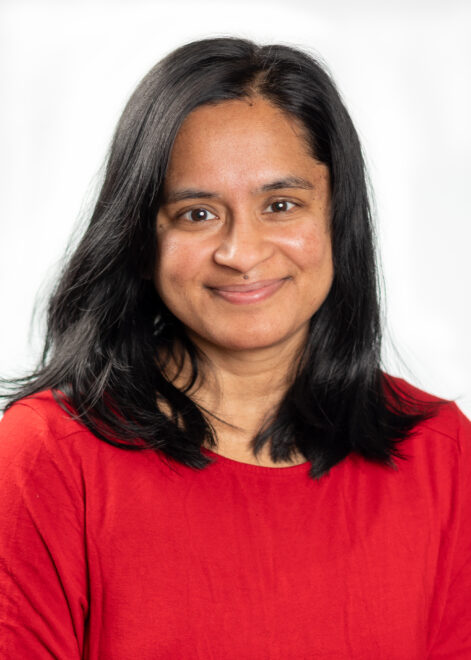Dr. Mishra is an infectious disease physician and mathematical modeler and holds a Tier 2 Canadian Research Chair in Mathematical Modeling and Program Science. Our research focuses on disentangling sources of heterogeneity in risks of onward transmission of infectious diseases, and is grounded in the implementation of targeted and adaptive public health programs and communities. Our team examines transmission pathways structured by systemic inequities, and tests interventions tailored to disproportionate risks to inform public health and policy decisions in Canada and internationally. Research interests include the structural and systemic inequities as they relate to the pathways that lead to disproportionate risks of transmission, and modeling interventions tailored to disproportionate risks. Our team develops and uses different types of epidemic models (compartmental, agent-based), statistical models, and causal inference and with a focus on integration of data and quantitative bias analyses. Our work is centered on explanatory modeling and asking “why” using counterfactuals, especially in the context of transmission dynamics (or “interference” in epidemiology-terms). Epidemic theory, testing assumptions and contributing methodological insights/advancements, and coding are key to our work. Our lab primarily works in the field of HIV and sexually transmitted infections among key populations, in partnership with communities and program implementers in Kenya, South Africa, Eswatini, Ukraine, India and in Canada. Our work on COVID and Ebola includes collaborative projects in partnership with colleagues in Sierra Leone. Our infectious disease modeling network includes the International HIV Modeling Consortium, CANMOD, and Math for Public Health (Fields Institute).
Chidumebi Idemili
PhD Graduate Student
Supervisors: Sharmistha Mishra
Dr. Suzanne Shoush (MSc candidate, HSR, IHPME, University of Toronto)
Jesse Knight (PhD candidate, Institute of Medical Science, University of Toronto)
Oliver Gatalo (PhD student, Epidemiology, DLSPH, University of Toronto)
